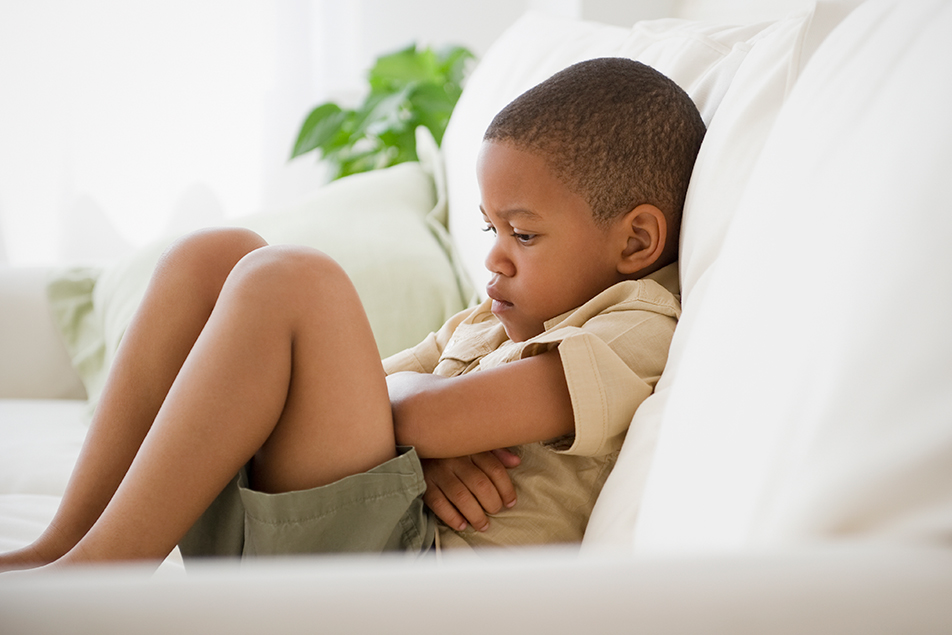
This post was written by Tony GiaQuinta, MD, PPG – Pediatrics.
Admittedly, when I was approached to write about this topic, I had no idea what it was. I went to my usual pediatric journals and was surprised to find zero on the subject. This usually means one of two things: It is a brand new medical issue facing our children, or it's a new name for an old problem. So, I tried what many do when they claim, “I've done my research.” I gave the phrase a google. After reading about this in some parent blogs, I found my answer. It's a little of both.
Defining the phenomenon
After-school post restraint collapse describes a phenomenon some notice when their children return home from school or daycare acting, well, a hot mess. The term “after-school restraint collapse” is a more formal diagnosis. But if you are scratching your head watching your child throw a full-blown meltdown after walking through the door, this might be what you're witnessing.
I'm not sure we know enough about the exact psychology of why this happens or if some kids are more susceptible than others, but some surmise that the energy required to hold it together all day long takes its toll. And, like holding your breath underwater, all that energy has to go somewhere when you resurface and usually comes out in a giant gasp of volume and emotion. Whatever the cause, it sounds like a meltdown, and as a pediatrician, I know a thing or two about meltdowns.
Addressing your child’s actions
We usually refer to toddlers here, but the gist is still the same. I like to talk about meltdowns as though they are a bucket of “need” that every child has. When that bucket runs dry, they find other ways to fill it up.
Ideally, we can use positive parenting techniques for younger children to replenish their buckets and meet those needs. You can do that by doing “time-ins” of back-and-forth play while pointing out all the cool and creative things they do. However, if a child doesn't get the attention they want and need, they will act out, resorting to negative actions to get what they want. Anyone with children can attest to those incredible displays of emotion, leaving us all in awe as a once happy toddler turns into an incredible hulk, full of sound and fury, in a blink of an eye.
For older children, I can see how an adolescent could come home with an empty bucket of love and attention after a long day. So, when they walk through the door, there's a good chance they'll be craving what was missing from a reliable source, their emotionally connected caregivers or parents. While it might not always seem like it, they're looking to you to fill that void.
Supportive strategies
So, what is a parent to do? Try a few support strategies to help your child work through those big emotions and challenging days. Here are a few to get you started:
- Be present – Notice your child when they come home. I think step one comes with a mandatory, turn your phone off for a solid 30 minutes. Now, don't overdo it. I get it. You are super excited to hear about all the awesome things they've learned, accomplished or made, but be careful not to interrogate or ask too many questions. Just be present and notice them. Go ahead and tell them you missed them. Let them know that you like how they styled their hair, that the artwork they made was fantastic, etc. These are all bucket fillers that will slowly get the job done.
- Be flexible – An after-school routine is a great idea, but allow lots of room for flexibility when they get home. Chores and homework can wait. Give them 30 minutes of freedom to zone out a little. My suggestion would be a quick stroll with a healthy snack. But spending time together while playing a video game, watching a short television show, or some other fun hobby is OK, too.
- Validate their feelings – You can help put out the flames when these meltdowns occur. I would start with a quick validation of their emotions, "Dang, I get it, you had a long day of being great at school, and you are tired. I'm here for you when you need me." From there, be present and keep calm. You don't have to respond to irrational comments or actions; you aren't going to make sense to an overloaded, immature brain. Any volume, anger or emotion from you will fan the flame. Your quiet presence is the best fire extinguisher. Also, children need security, so it is OK to play that role and, if necessary, calmly (not angrily) direct them to their room and tell them you'll be up in a few minutes to check on them.
- Acknowledge that this is hard – Not taking these behaviors personally or to heart will definitely be a test of your ego and mental toughness. It's hard to parent when emotions run high, so give yourself some grace and take a timeout for yourself when needed. Remember, time, love and support always win out in the end. What feels like a disaster one day is a funny story the next. Just keep at it.
If you have concerns about your child’s behavior, consider reaching out to your pediatrician, primary care provider, or a mental health professional for help.



